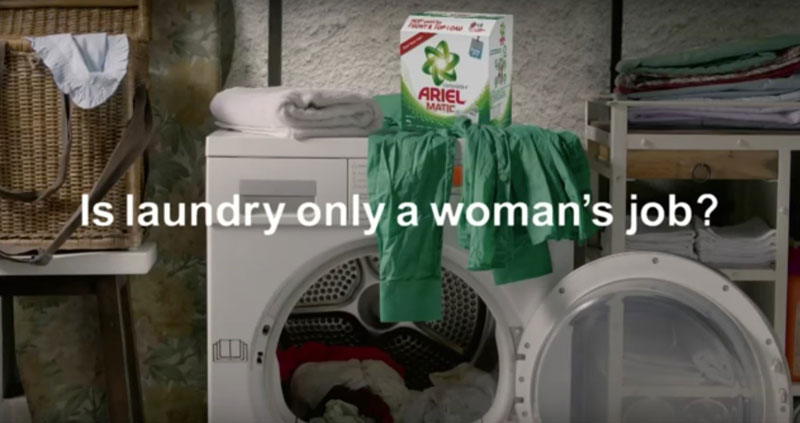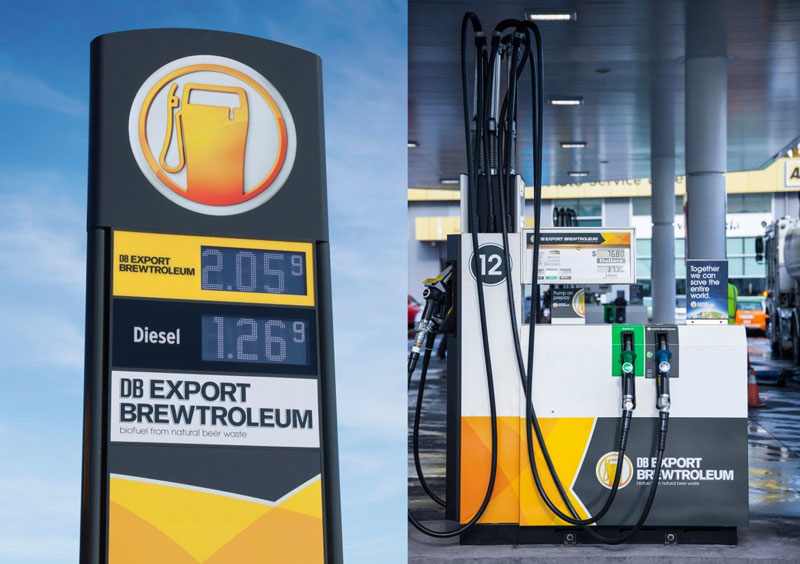Rajat Mendhi, Executive Vice President, Planning, BBDO Mumbai, was responsible for the widely lauded Share The Load campaign for P&G detergent brand Ariel. Rajat is one of the judges on the Best Use of Brand Purpose category, chaired by Jim Stengel, at the 2017 WARC Awards. Here, he shares his views on why Brand Purpose is so important with WARC's Case Study Editor, Lucy Aitken.
Why is it important for brands to have a purpose?
Millennials today are looking for the good behind the goods. If you dig deeper into their consumer behaviour, they are more aware, passionate and connected. They know they have a voice and they are able to put forth actions that can actually matter, whether that's assuming a far bigger responsibility of making a positive and lasting impact on the future, joining the women's march in the US, or even making sure their environmental footprint is reduced. This sense of responsibility percolates down to every brand they choose, talk about and even might think of working for.
Does the importance of brand purpose extend beyond a millennial audience?
Yes. If you see what Ariel has done with Share The Load, it's had a far bigger reach beyond millennials.
Can - and should - every brand have a purpose?
An opportunity exists for every brand to find a context where both their brand and their product can authentically play a role in terms of creating social change. Think about the kind of brands that have put forth a purpose: Always is a feminine hygiene brand, Ariel is a detergent brand – both of them are in traditionally very low involvement categories. Yet look at what Always achieved with Like a Girl and Ariel with Share the Load.

What about brands that have had issues around trust which may have affected their reputation?
It is challenging for brands that have had issues around trustworthiness, but there are possibilities and opportunities open to them. If a brand is able to put forward its point of view in an authentic way, people can be very forgiving.
Should a brand purpose always stem from a company's provenance?
A lot of brand purpose comes from origins but today it's also important to look at what the brand truth is and what the contexts can be in a way that provides real solutions. I don't think a brand purpose can always come from a company's provenance, but it can come from the truth of what the product can do and the context around it. Authenticity is the most important part.
How can a brand purpose help a brand differentiate?
In Byron Sharp's How Brands Grow, he mentions that brand users don't think about their brands as being different from their competitors. What a brand purpose rooted in a social or cultural context can do is help a brand have a distinctive point of view. You may be exactly the same as any other telco, for instance, but a distinctive view of the value of what you can offer to people can help you stand out amongst the crowd. In that sense, it's not so much of a differentiation, it's about distinctiveness.
Is becoming distinctive through having a purpose becoming harder now that so many more brands are doing it?
There are so many problems and issues out there that one can always find a new perspective and be part of a solution, so I don't think it's going to get tired. I think it's only the start of making meaningful progress. Brand purpose is not a CSR programme because it's a big chunk of your budget that does meaningful things for your business and society. That's what makes the Warc Awards Best Use of Brand Purpose category so important, the link between purpose and effectiveness.
What would you say to people who think that brand purpose is simply another iteration of CSR?
If you think about the way that CSR programmes have been run, they are usually a part of your profit that you put towards a good cause. The thinking behind CSR is that it's about building a certain amount of brand affinity. But the new way to think about it takes into consideration that what matters to people are the issues in their everyday life. Brands are only a small part of it, but when a brand elevates its purpose into something that matters to them, you can become part of their lives outside of when you're washing the laundry or drinking a beer. You matter to them in a far bigger way. When you're speaking to them about something they believe in, that translates into goodwill. Then, they'll go to a shelf and might try something new.
What are your favourite examples of brand purpose?
Purpose-led work doesn't have to be serious. The one that stood out for me was DB Export's Brewtroleum.

It's such a simple, fun, light-hearted approach to a serious topic but it has the same gravitas of any 'serious' issues-based campaign because it's about saving the world one beer at a time. The other one is Always' Like a Girl.
This achieves a bigger goal around the product, by giving girls confidence for 30 days of the month, not just the five their period lasts for.

How does brand purpose go beyond marketing to affect all areas of a business?
Brand purpose can't just be a set of words; it's a belief system that should percolate down to innovations, programmes that you invest in, the partnerships you get into, HR policies and even things like diversity initiatives. You can't pay lip service, you need to show your actions are genuine. In this world of greater transparency, people will find out if you're real or not.
How can brand purpose help a brand extend into new markets and also appeal to new target markets?
In my experience with Ariel and Share The Load, if you have a powerful brand purpose that matters to people you can't contain it; it has a ripple effect that spreads the brand message far and wide into new markets and to new consumers. Having a brand purpose and a point of view that really matters to people, something that they can rally behind, it then becomes much easier to go into new markets and appeal to new target markets. You can't think of consumers in the "old" way – as a particular set of people – you have to think of them as a universe.
How do you measure how effective a brand purpose is?
Purpose must lead to both business and social performance. It's a cycle that wills human investment behind it. Brand purpose matters to people who will drive brand fame, it will drive saliency. It'll do that by tapping the power of influencers that you didn't even know would get behind your brand and spread it far and wide, possibly making a cultural mark that will inspire a social impact.
What are you looking for from Best Use of Brand Purpose papers in this year's Warc Awards?
I'd like to see papers put forward a framework that connects the brand challenge, the context that matters, the brand purpose and explain how it worked towards driving real business and social impact.
The 2017 WARC Awards will award for three categories: social strategy, content strategy, and brand purpose.
Entries close on the 20th April.
For entry details, visit the WARC Awards page.

